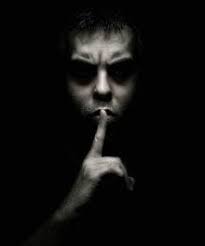Woe to Those Who Draw Sin With Cords of Deceit
5: 18-19
Woe to those who draw sin with cords of deceit DIG: Who gets hit with the third woe and why? In today’s images, how would you describe what they are doing with these cords of deceit? What sarcasm do you hear between the lines?
REFLECT: Who do you know that is tied down with cords of deceit and wickedness? Being spiritually blinded, how can you help them? Praying for them is probably the most effective means of intercession. Make a “Top Ten” list of people to pray for and then commit to pray for them on a consistent basis. The prayers of the righteous are powerful and effective (James 5:16). What deliberate choices are you making right now in your life? Do you think you could be taking your relationship with God for granted?
In the six woes of Isaiah (5:8-25), the first two therefore sections subdivide 5:8-17 from 5:18-25. The bitterness of the wild grapes is revealed even more than before, for here Isaiah exposes the underlying cynicism that was responsible for the people’s refusal to live in obedience to their God. They did not believe that ADONAI was in control of all things, and they believed that they were really more capable of determining right from wrong than He. This resulted in a perversion of values in their society: debauchery was more honorable than purity, and drunkenness was preferable to sobriety. The wicked were pronounced innocent, while the righteous were condemned.
Far from being convicted of the charges against them (5:13-17), they mocked both Isaiah and his Creator, saying: Let God hurry, let Him hasten His work out in the open so we may see it (5:19a). They believed that the Temple would never be violated. After all, they thought, ADONAI had given them the priesthood, the Temple and the Land. Were they not the apple of His eye? Hadn’t He said He would always be with them? Later, during the ministry of Jeremiah, the Levites would actually walk within the Temple complex, repeating in vain repetition: This is the Temple of ADONAI, the Temple of ADONAI, the Temple ADONAI (see the commentary on Jeremiah, to see link click Cc – False Religion is Worthless), actually thinking that they could merely remind the LORD that it was indeed His Temple, kind of a good luck charm, even though they were practicing idolatry right in the Temple itself (Ezekiel 8:1-16)! They had taken their relationship with YHVH for granted; they had confused Ha’Shem’s kindness and mercy with weakness. They thought God would merely wink at their sin because He loved them so much.
If you didn’t know better, it would seem that they were daring God to punish them! They said: Let it approach, let the plan of the Holy One of Isra’el come, so we may know it (5:19b). Their use of Isaiah’s phrase, the Holy One of Isra’el, was hardly an acceptance of what the title means, but rather a way of taunting Isaiah and ridiculing what they perceived to be his “holier-than-thou” attitude.

To this, Isaiah responds with a third woe, declaring: Woe to those who draw sin along with cords of deceit and wickedness, as with cart ropes (5:18). Earlier, Isaiah accused the wealthy of drinking an excessive amount of wine at their banquets (5:11). But more importantly they had no respect for the work of ADONAI (5:12). There, Isaiah had charged them with being so intoxicated with seeking pleasure that they had shut God out of their lives. But when the prophet confronted them with their sin, instead of being convicted about it, they mocked him.
They are pictured as pulling sin to themselves with ropes by making deliberate choices. This was no accident. They did not fall into it, but were consciously choosing evil over righteousness. The Israelites were proud of their unbelief, but it was like a yoke by which they were harnessed to the wagon of sin. So when God punished the wagon, they were punished with it. They demanded ADONAI act before they would believe. But there is never enough evidence for unbelief. Only when faith is offered freely, are God’s acts able to confirm that faith (Hebrews 11).



Leave A Comment